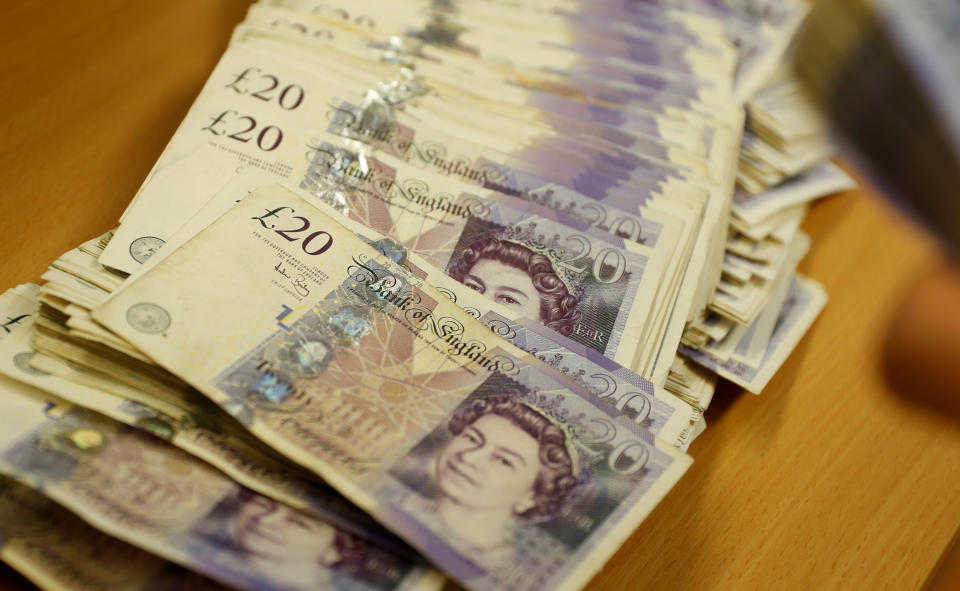Calls for reform as report finds council tax and levies on fuel, alcohol and tobacco hit poorer regions harder

Boris Johnson is being urged to make tax reform part of his “levelling up” agenda, after a new report revealed that people in the UK’s poorer regions lose a greater share of their incomes than Londoners to council tax and “sin taxes” on alcohol, tobacco and fuel.
The prime minister’s professed goal of levelling up disadvantaged areas has so far focused largely on job-creating investment in infrastructure like roads, railways and bridges, as well as the transfer of civil service jobs out of the capital to the regions.
But the new report by the right-of-centre think tank Onward, produced for the levelling-up taskforce of Conservative MPs, argues that a faster impact can be produced through the tax system, by targeting levies that impose a disproportionate burden on poorer parts of the country.
The group’s director, former Downing Street aide Will Tanner, identified reforms to council tax, capital allowances and personal income tax allowances as measures that could boost regional opportunity and growth.
Despite having the UK’s most expensive housing, London has the lowest per-capita council tax bills in England, at just £481 per person, compared with £593 in the east of England and £620 in the southwest, the report found.
Meanwhile fuel duty soaks up 2.72 per cent of post-tax income in Yorkshire and the Humber and 2.68 per cent in Northern Ireland, compared to just 0.68 per cent in the capital, where more people use public transport, bicycles and electric cars.
And the average Londoner pays just £210 a year in tobacco and alcohol duties, compared with £469 in Northern Ireland.
For businesses, environmental levies are between one-third and one-half lower in London (0.48 per cent) than in Scotland (0.99 per cent) or the east Midlands (0.79 per cent), which have greater concentrations of polluting industry.
The report found that adjusting the band A council tax rate on the least valuable homes, so that it equates to five-ninths rather than six-ninths of the band D rate, would save 54 per cent of households in the northeast an average of £147 a year, compared with a saving of £125 for 4 per cent of households in London.
Meanwhile, increases to bands F-H would mean 15 per cent of households in London and the southeast paying more, but just 3 per cent in the northeast. Boosting capital allowances for plant, machinery and industrial buildings would generate larger gains for the Midlands, the north and Wales, the report found.
And removing tax advantages for self-employed people would disproportionately impact more prosperous regions, with an average £3,452 tax increase in London compared with a UK average of £2,344 and just £1,565 per self-employed worker in the northeast and Wales.
A £1,000 increase in the income tax personal allowance would boost incomes by 0.52 per cent in the northeast, east Midlands and Wales, compared to 0.35 per cent in London, though workers in the capital would gain most in cash terms.
Mr Tanner said: “Levelling up is often associated with new infrastructure or extra funding for skills and research. These are very important but will take time to have an impact. There is another tool available to ministers that can deliver immediate results and which should appeal to pro-market conservatives – the tax system.
“If we don’t use the tax system as well as spending, we’ll be trying to level up with one hand tied behind our back. If levelling up is to succeed, we need to use the tax system to drive regional growth too.”
Read More
Does the Brexit deal pave the way for Britain to become a tax haven?
Tax revenue lost to electric cars needs to be plugged, says Treasury
Levelling up means laying the ghost of social mobility to rest
Johnson’s ‘levelling up’ agenda is real – his ambitions depend on it

 Yahoo Finance
Yahoo Finance 